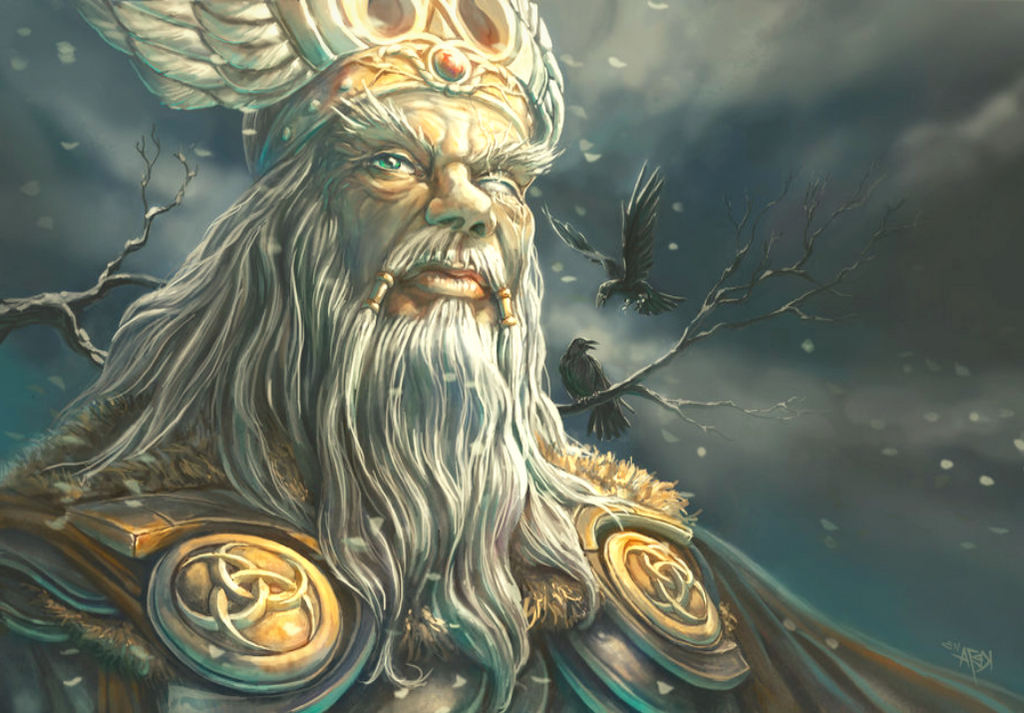Here's Mind-blowing Definition of Norse Names That You Need To Know
Norse mythology possesses layers of meanings and meanings that our human interpretation couldn't comprehend. Norse mythology itself contains the codes of universal truths. Every detail of it is trying to tell the readers something. Every name in Norse mythology is attempting to portray the personality traits of a person. Here's awesome definition of Norse Names that will excite you.
BALDUR /BAL-durr/ means "Prince" in Old Norse language. In Norse mythology, Baldur was the son of Odin and Frigg. Odin was the chief god of Asgard while Frigg was the chief goddess. His family background coined him the title "Prince". Since he was young, Baldur dreamt of his death. Norse gods tried many ways to prevent Baldur's dream to come true. However, prior to Ragnarok Doom of Gods, Baldur was murdered indirectly by Loki.
EIR /AY-er/ means "mercy". In fact, Eir was the name of the Norse goddess of medicine and healing.
FREYA /FREI-ya/ means "Lady". This is the name of Norse goddess of beauty, sex, war, and jewelry. She and Odin shared the fallen warriors: half with Odin in Valhalla, the rest with Freya in Folkvang. Freya was so beautiful and tender that all creatures in Norse myth loved her.
FREYR /FREI-yr/ means "Lord". He was the twin brother of Freya. Freyr was the Norse god of sunshine and light. Many people believed he and his sister were the rulers of Vanaheim. Freyr presided over the land of elves in Alfheim.
FRIGG /FRIG/ means "Love". She was the goddess of fertility, love, and air. She was the wife of Odin. The story of Frigg always revolved around love, especially her attempts to save her beloved son Baldur from his prophesied death.
HEIDRUN /HEI-der-run/ has two compounds HEID meaning "clear" while RUN meaning "secrets". It's the name of the goat standing in the roof of Valhalla and chewing leaves of Yggdrasil. The goat provided Odin's warriors with mead.
HEL /HEL/ means "to conceal, to cover". Hel was the name of the goddess of the land of the dead. It was a concealed place indeed. Hel's land located in the underworld and under the roots of Yggdrasil Great Tree of Life.
IDUN means "to love again". It was the name of a Norse goddess. She was the guardian of fruits that provided Gods youth and beauty. Because of her power, she was named Idun "to love again".
LOKI means "to break". There is little need to explain who Loki was. He often broke the values that Gods tried to uphold. He put people in embarrassment and helped them out to feel like a hero.
MAGNI was the son of Thor. His name meant "strength, might". Indeed, Magni was the strongest god in Norse mythology, even stronger than his father.
MJOLNIR means "crasher" and it was the hammer of Thor. God Thor used Mjolnir to create thunder and storm. Thor used his Mjolnir hammer to crash the skull of many giants in Norse mythology.
ODIN was the Aesir chief god who presided over Asgard land of god. His name meant "inspiration, frenzy, rage". The name directly linked to Odin's characters. Whenever Odin appeared, he would instil into his fellows a sense of inspiration of wisdom, knowledge, poem, etc. But when he appeared at war, he would make his foes terror-stricken.
SIF /SIV/ means "Bride". Sif was the name of Thor's wife.
SKADI means "damage, harm". Skadi was the name of winter goddess. The destructive level of winter in the Viking age was undoubted. Skadi was believed to get married to Odin after her first failed marriage with Njord God of Seafaring.
THOR means "thunder". It's not necessary to explain much about this figure.
TYR means "shine, sky". He was the god of justice and god of sky. Tyr sacrificed one hand for the good of his clan in Norse mythology.
URD means "fate". Urd was the name of one of three Norns in Norse mythology. Urd was the Norns of the past.
VERDANDI means "what is going to happen". She was also one of the Norns. She bore the responsibility for the future.




